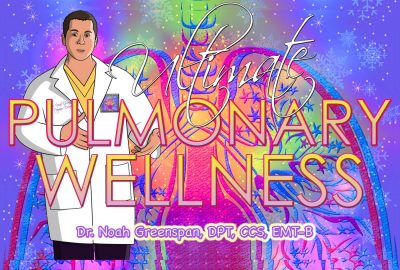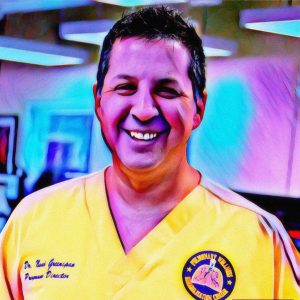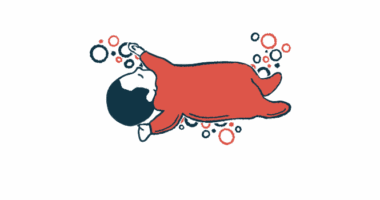Living Well with Pulmonary Hypertension? Yes We Can! (A Rehab Specialist’s Advice)

Hello, World!
For those of you who don’t know me, my name is Noah Greenspan. I am the founder and program director of the Pulmonary Wellness & Rehabilitation Center in New York City. I am also the founder of the Ultimate Pulmonary Wellness Webinar Series, the Ultimate Pulmonary Wellness Facebook Group, the Pulmonary Wellness Research and Education Society, author of Ultimate Pulmonary Wellness, and creator of Pulmonary Wellness Online, our newest online pulmonary rehabilitation program. The book is available to read online, and the webinars are available to watch free of charge on our website: www.PulmonaryWellness.com.
Are you starting to sense a theme?
That is because nothing in the world gives me greater satisfaction than helping people with respiratory and/or cardiovascular disease breathe better, feel well instead of sick, and truly live their best lives instead of watching life pass them by from the sidelines.
A big part of that involves dispelling myths and misinformation (of which there is a lot), an unfortunate byproduct of today’s fast-paced healthcare environment.
While information of varying quality regarding these subjects is available to those who are resourceful, finding this information and translating it into something that is both practical and useful is challenging, if not impossible. In addition, for every piece of solid information, there are infinitely more myths, misunderstandings, half-truths, and legends that are pervasive in the Twittering, Facebook age of Dr. Google’s Instagram Snapchat.
The Pulmonary Hypertension News forums are a place to connect with other patients, share tips and talk about the latest research. Check them out today!
That’s why I am thrilled to be joining the ranks of Pulmonary Hypertension News to help remedy that exact situation and help clear up any confusion you may have regarding your disease including the medical, behavioral, and lifestyle issues behind not just living, but living well and thriving, in spite of your cardiopulmonary condition.
Over the next several months, I will share many of these principles with you. The good news is that the overwhelming majority of the information has come directly from the source itself: my patients. They are the true experts in the field, who have experienced many of the same struggles as you and found ways to overcome them, even when it seemed like all odds were against them, and you can, too. It is my hope that by sharing our collective knowledge and experience, you, too, will be able to experience your own little slice of “Ultimate Pulmonary Wellness.”
When someone is diagnosed with a chronic illness, particularly one like pulmonary hypertension (PH), that violates so many boundaries in people’s lives, they are all too often relegated to a unifocal, monochromatic, barely recognizable version of their former selves. They are now the poor patient, sick, or even worse, the victim. To the medical community, they can become “the PH patient in room 2.” Friends and family often don’t know what to do or how they can best help, while at the same time, being kind to themselves as they, too, go through these traumatic adaptations in their own lives.
Patients’ lives often become very functional in nature, made up of doctor’s visits, pharmacy runs, and a daily struggle for breath and survival; often completely devoid of any forms of aesthetic beauty like art, music, fashion, or fun, in other words, living. This, too, must change and is also one of the key themes behind Ultimate Pulmonary Wellness, where our mantras include things like: “yes we can,” “inspired by LIFE,” and “we rehab to live, not live to rehab.”
I first started treating pulmonary hypertension patients approximately 20 years ago, at a time when most of these patients were being rejected from cardiopulmonary rehabilitation programs because they were “too sick for rehab.” These patients were extremely ill, often barely able to breathe, with oxygen saturations in the low 90s or even 80s at rest and plummeting into the 70s (or worse) with even minimal exertion. In many cases, they were unable to tolerate almost any activity due to fatigue, dizziness or syncope (fainting), weakness, and deconditioning. This was terrifying and not just for the patients. It was often scary for the clinicians treating them, and as a result, people’s quality of life became worse and worse.
That is when we first started experimenting with various exercise protocols and creative methods of oxygen delivery. After all, under the circumstances, did we really have that much to lose? By providing adequate supplemental oxygen (often 100 percent via non-rebreather mask), making adaptations to their programs to address the dizziness and syncope, and employing the right exercise protocols, patients actually demonstrated improvement. They became less short of breath and less dizzy. They could tolerate more exercise and higher levels of activity, and their oxygen saturation improved over time (both at rest and during exertion).
And over time, as our collective understanding of PH, including earlier diagnosis and more effective treatment, continues to improve, so does patient quality of life.
Over the past 27 years, I have come to believe there are five core pulmonary wellness and lifestyle interventions that carry substantially more weight and have a significantly greater impact than all others. These five areas include: medical — having the right healthcare team, taking the right medications, and taking them properly; pulmonary-specific exercise; pulmonary-specific nutrition; stress, anxiety, and depression management; and prevention of infection.
Comprehensive patient and caregiver education is also important. We have found that all of these components work synergistically to support the PH family’s best life. In each of these areas, there are specifics to the PH patient that are simply not common knowledge, even among many top “experts.”
One of the driving principles behind Pulmonary Wellness has always been that an educated patient is our greatest ally in the fight against cardiopulmonary disease and lack of information and understanding on the part of patients, family members, and even clinicians pose one of the greatest obstacles to a patient’s ability to achieve their highest level of cardiopulmonary health and wellness.
I must once again acknowledge my many patients, who are by far the driving force behind who I am as a clinician and who I strive to be as a human being. It is through these symbiotic relationships with the very people who come to me for help, allowing me to participate in their lives and getting to know them through their disease, that I am constantly learning about myself and continuing to grow, both professionally and personally.
In sharing our collective experience with you, I hope to give you a direct link to the greatest source of information about your disease, in an effort to help you avoid some of the same pitfalls that others before you have had to deal with. One thing that I can tell you for certain is that even more gratifying than trial and error, is trial and success, especially when it comes to my patients.
YES WE CAN!
***

Dr. Noah Greenspan, DPT, CCS, EMT-B, is a board-certified Clinical Specialist in Cardiovascular and Pulmonary Physical Therapy, with more than 25 years of cardiopulmonary physical therapy and rehabilitation experience. His book “Ultimate Pulmonary Wellness” — a continuing source of pride — was published in 2017, and he has made it available for all to read online free-of-charge using that link or by going to the center’s website, www.PulmonaryWellness.com. His “Ultimate Pulmonary Wellness” Lecture & Webinar Series is also open to attend free-of-charge on the website.
Dr. Greenspan founded the Pulmonary Wellness & Rehabilitation Center, a Manhattan-based physical therapy practice specializing in the care of patients with cardiovascular and pulmonary diseases, in 1998. Under his direction, the Center has conducted over 100,000 exercise sessions and has been named “Best of the United States” in the area of cardiovascular and pulmonary physical therapy.







